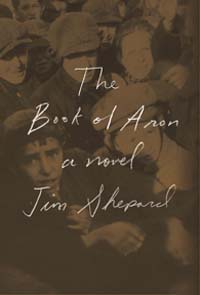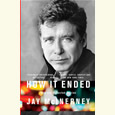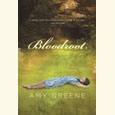The Right to Be
With The Book of Aron, Jim Shepard adds another essential volume to the canon of Holocaust fiction
“To write poetry after Auschwitz is barbaric,” argues Frankfurt School philosopher Theodor Adorno in a 1949 essay titled “Cultural Criticism and Society.” The Holocaust’s horrors, Adorno suggests, annihilate the possibility of human progress through art and render hollow the consolations of beauty. If the same culture that produced Goethe and Hölderlin could also send six million innocents to the gas chambers, how can we ever turn to literature again without irony? Other writers have maintained that all attempts to represent the atrocities of the Holocaust through prose are fruitless, for words simply aren’t capable of reproducing the magnitude of such atrocity.
 These well-known arguments necessarily amplify the daunting task Jim Shepard has set before himself in The Book of Aron, a novel written from the perspective of an impoverished Jewish boy trying to survive in the Warsaw Ghetto with the help of Janus Korczak, the famed author, pediatrician, and orphanage director who turned down numerous offers of freedom to stay with the orphans in his charge, and who refused to abandon them upon their deportation to Treblinka in 1942.
These well-known arguments necessarily amplify the daunting task Jim Shepard has set before himself in The Book of Aron, a novel written from the perspective of an impoverished Jewish boy trying to survive in the Warsaw Ghetto with the help of Janus Korczak, the famed author, pediatrician, and orphanage director who turned down numerous offers of freedom to stay with the orphans in his charge, and who refused to abandon them upon their deportation to Treblinka in 1942.
Shepard clearly comprehends the gravity of his undertaking: The Book of Aron ends with a six-page list of sources, which begins with a statement of purpose in the form of a quotation from Marguerite Yourcenar: “My main object here…has been ‘to approach inner reality, if possible, with careful examination of what the documents themselves afford.’” Despite (or perhaps because of) the breadth of writing left behind by and about the legendary Dr. Korczak, Shepard makes him a secondary character, writing instead in the voice of the precocious Aron, an imagined example of one of the many children Korczack cared for, all of whom lost their families before they lost their own lives in Treblinka.
It’s an interesting narrative choice, and one which makes The Book of Aron a unique variation on the Holocaust genre. In Elie Wiesel’s Night and Anne Frank’s Diary of a Young Girl, we observe educated, prosperous families gradually reduced to poverty, stripped of their possessions and their dignity, and eventually sent to the death camps. But from the beginning Aron is essentially destitute, a position which affords him a unique perspective on suffering. The world would likely have been unforgiving to Aron even without the arrival of the Germans. But the Germans do come, and with them comes terror, and hunger, and death. Using a street urchin’s survival instincts and a knack for escaping trouble, Aron teams up with a group of boys and girls who use whatever means available to smuggle food and supplies both from outside and within the ghetto to keep their families alive. “Stealing is always wrong,” Aron’s mother says. “Starving is always wrong,” he shoots back.
 “My mother and father named me Aron, but my father said they should have named me What Have You Done, and my Uncle told everyone they should have called me What Were You Thinking,” Shepard writes at the novel’s outset. The comic tone of this opening sentence resurfaces throughout The Book of Aron, usually in the form of gallows humor that somehow amplifies rather than reduces the horrific circumstances. Later, after the Germans have overtaken Warsaw and driven its Jewish residents into overcrowded ghettos, Aron and another boy are caught smuggling a sack of turnips. While they wait in a holding room called the Streetcar, the boy jokes “that when Napoleon invaded Russia he put on a red tunic in case he was wounded, and Hitler put on brown pants.” Moments later, a German soldier enters the Streetcar and shoots the boy in the head.
“My mother and father named me Aron, but my father said they should have named me What Have You Done, and my Uncle told everyone they should have called me What Were You Thinking,” Shepard writes at the novel’s outset. The comic tone of this opening sentence resurfaces throughout The Book of Aron, usually in the form of gallows humor that somehow amplifies rather than reduces the horrific circumstances. Later, after the Germans have overtaken Warsaw and driven its Jewish residents into overcrowded ghettos, Aron and another boy are caught smuggling a sack of turnips. While they wait in a holding room called the Streetcar, the boy jokes “that when Napoleon invaded Russia he put on a red tunic in case he was wounded, and Hitler put on brown pants.” Moments later, a German soldier enters the Streetcar and shoots the boy in the head.
When Aron is finally separated from his family and finds his way to Janus Korczak, the novel’s tone lifts somewhat, for one cannot help but be inspired by Korczak’s devotion to his orphans and his relentless determination to save not only their lives but also their spirits. Korczak feeds the children and tends to their illnesses, but he also encourages them to sing songs and perform plays. Moreover, he refuses to abandon them long after they have all come to realize they are unlikely to be delivered from their tribulation. Though Aron’s voice is blunt and unsentimental, there’s no doubt that we are meant to recognize his resilience and Korczak’s compassion as examples of true heroism in the face of horror.
Why must new stories of old horrors be told, again and again? Some say we need them to honor the memory of those who lost their lives. Some say it’s because we need to remind ourselves of the depths humanity is capable of so that we might not fall into the same unspeakable sins. I suspect that novels like The Book of Aron are not just necessary but essential because they remind us how such evil, even in its most profane, indomitable, incomprehensible forms, can never completely overtake us. We have, of course, the will to survive, but we also have the capacity for love and the tenacity to persevere on behalf of those we love, even in the face of certain death. “Just because things were as bad as they could be,” Janus Korczak tells Aron, “that didn’t mean that we had to accept that action was useless.” With The Book of Aron, Jim Shepard has delivered a novel that is at once devastating and rousing, and one which I suspect is destined to endure as part of the legacy to which it pays tribute.

Ed Tarkington holds a B.A. from Furman University, an M.A. from the University of Virginia, and a Ph.D. from the creative-writing program at Florida State University. His debut novel, Only Love Can Break Your Heart, will be published by Algonquin Books in January 2016. He lives in Nashville.


